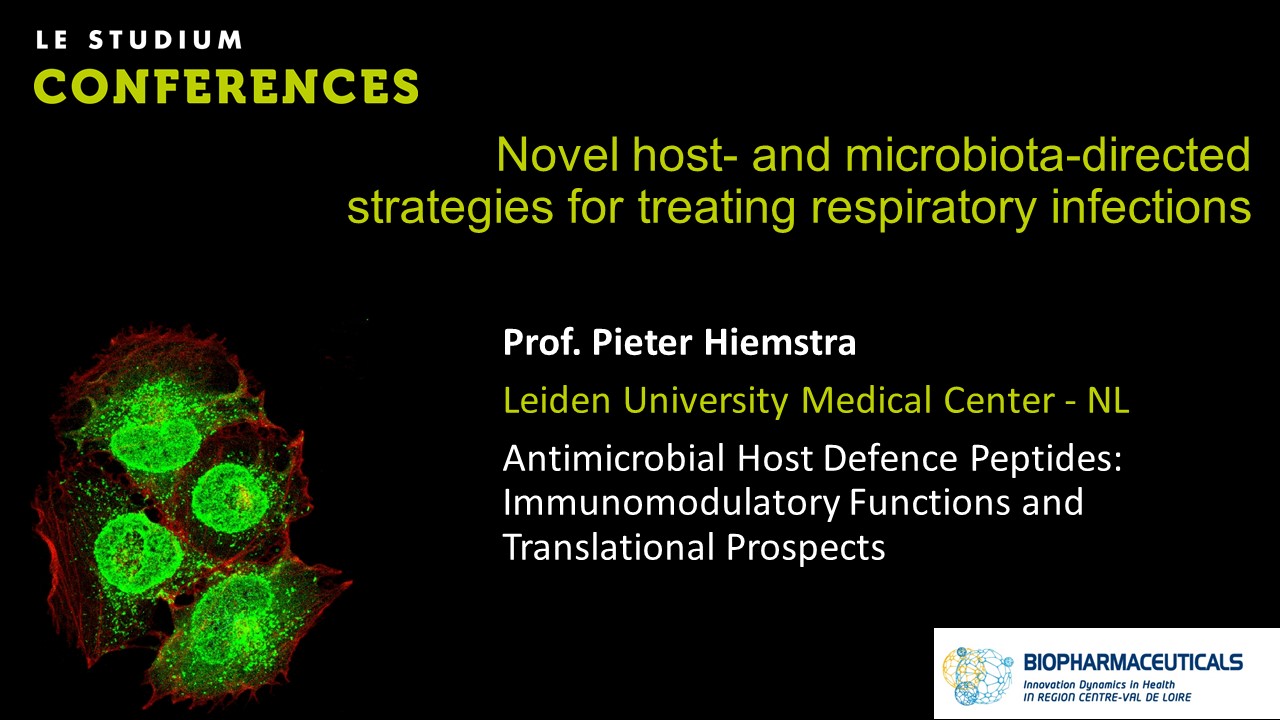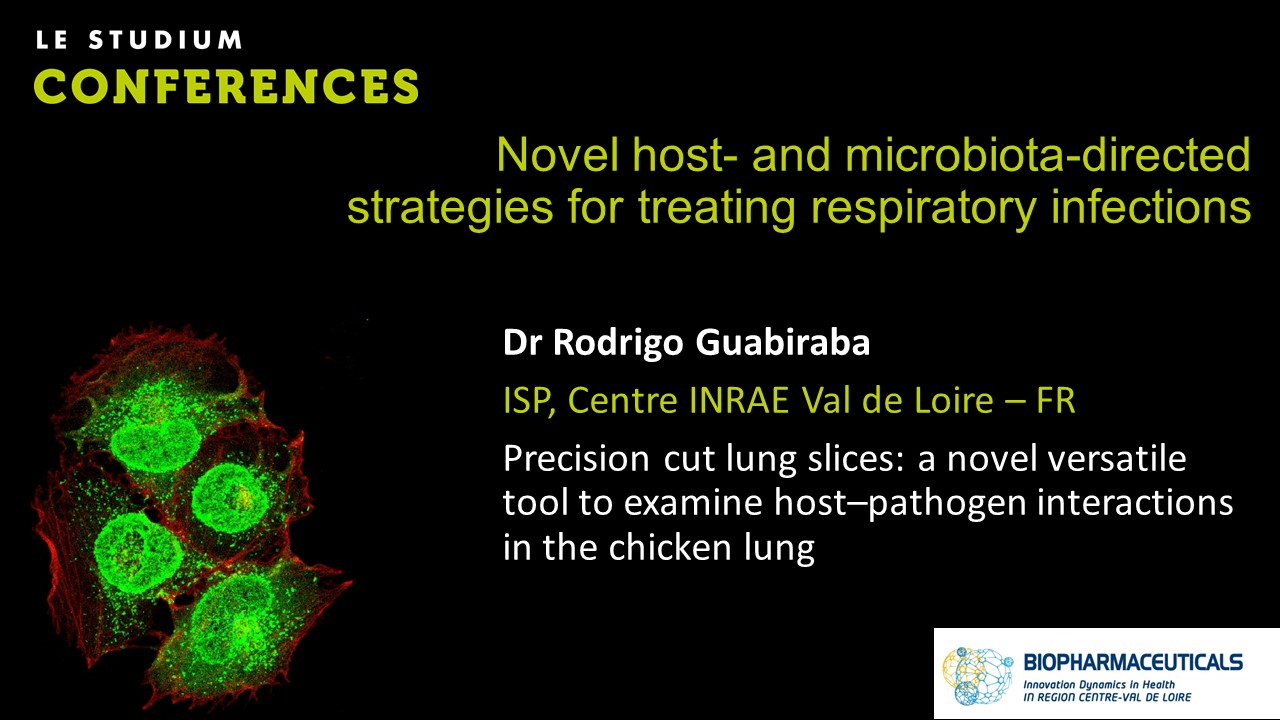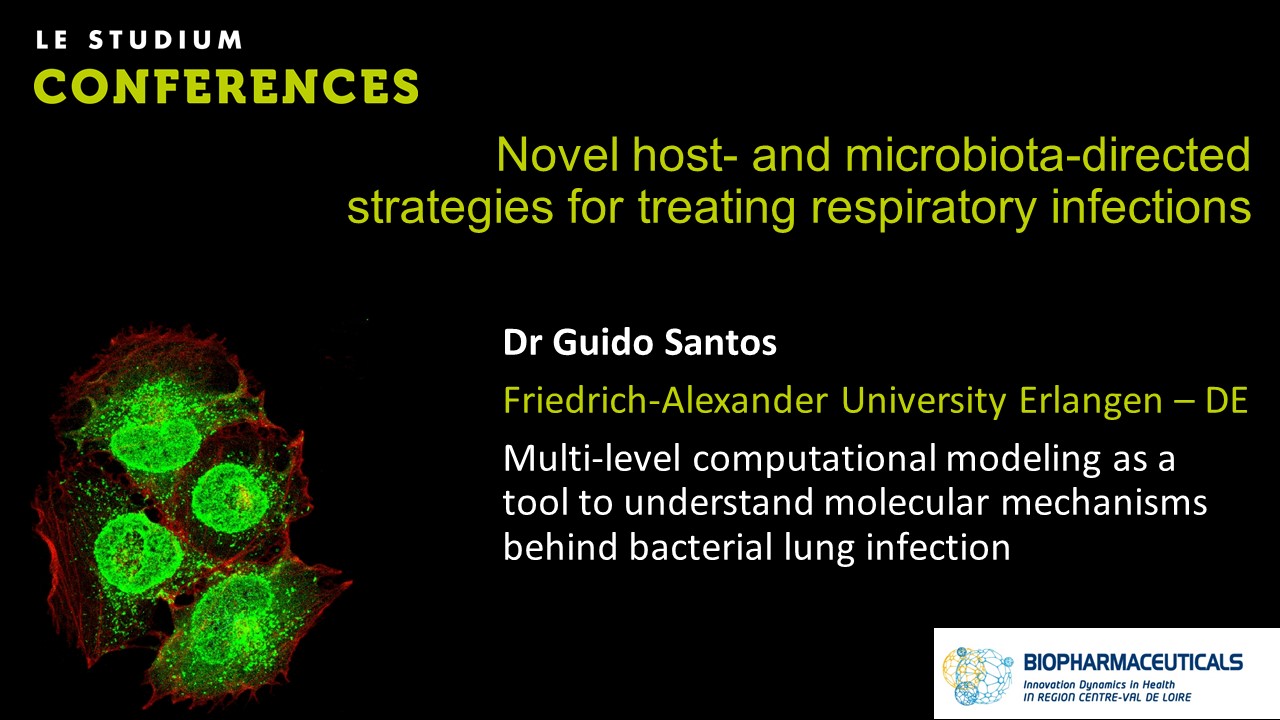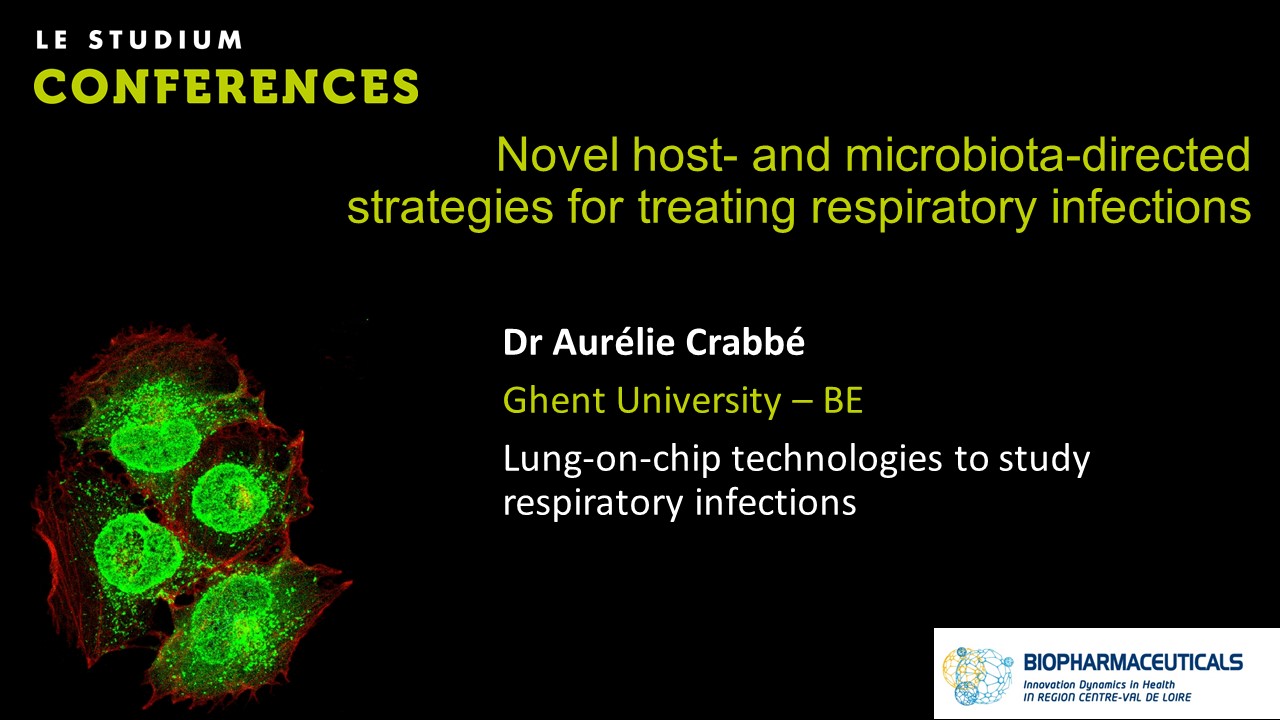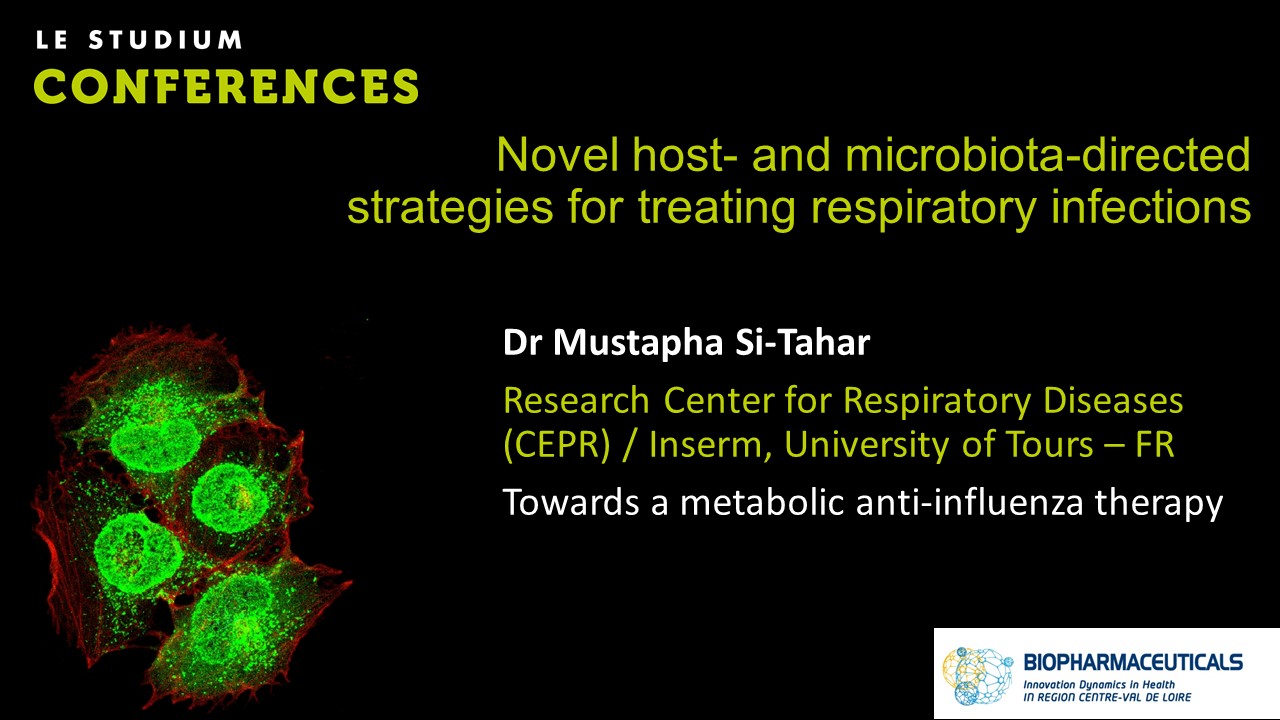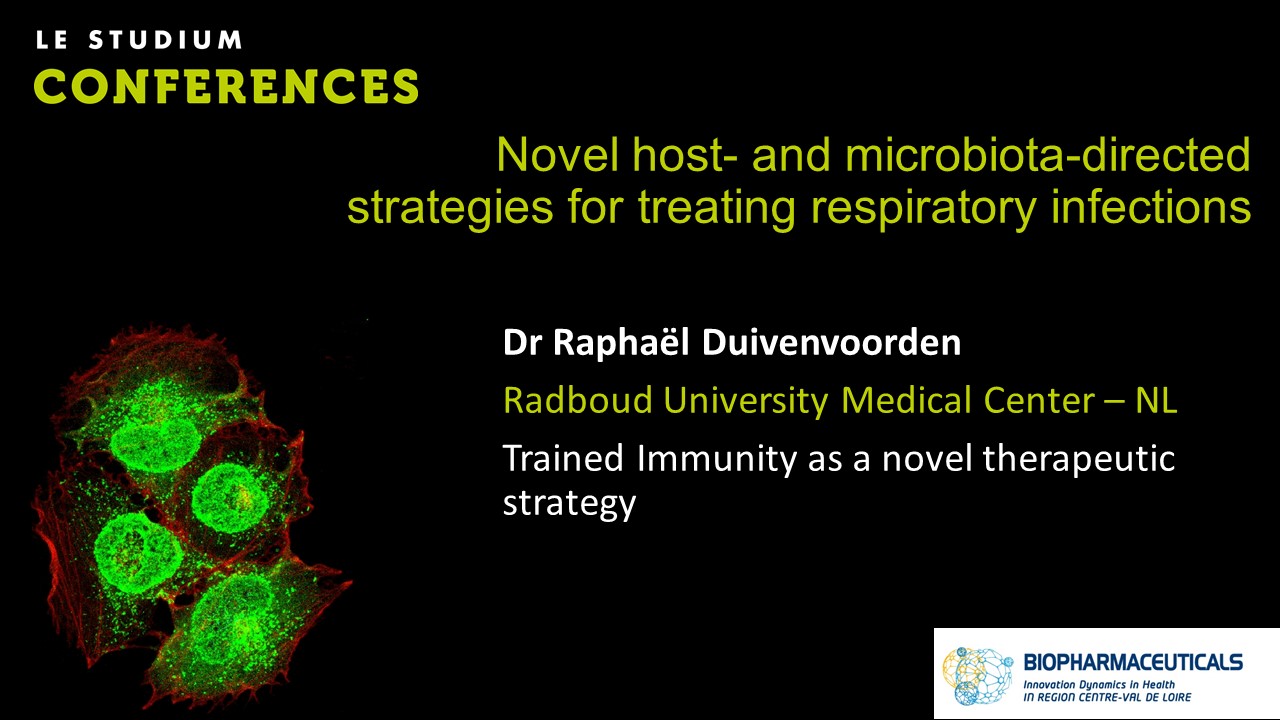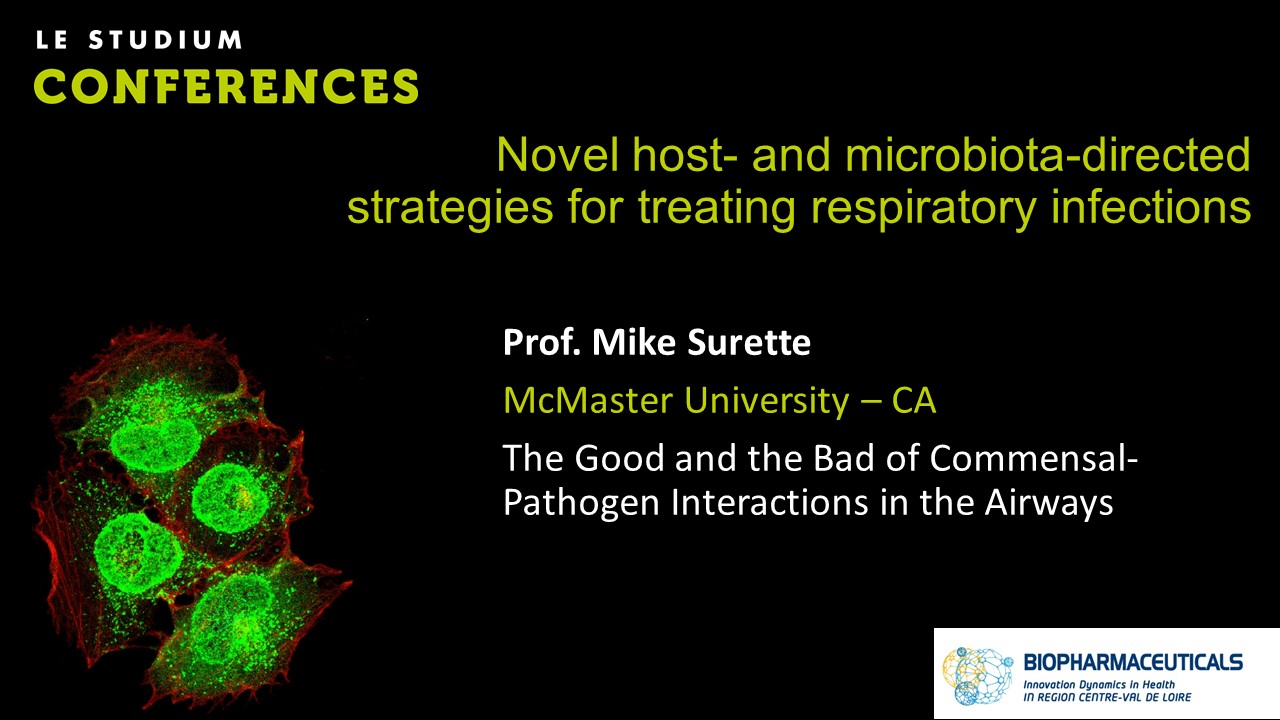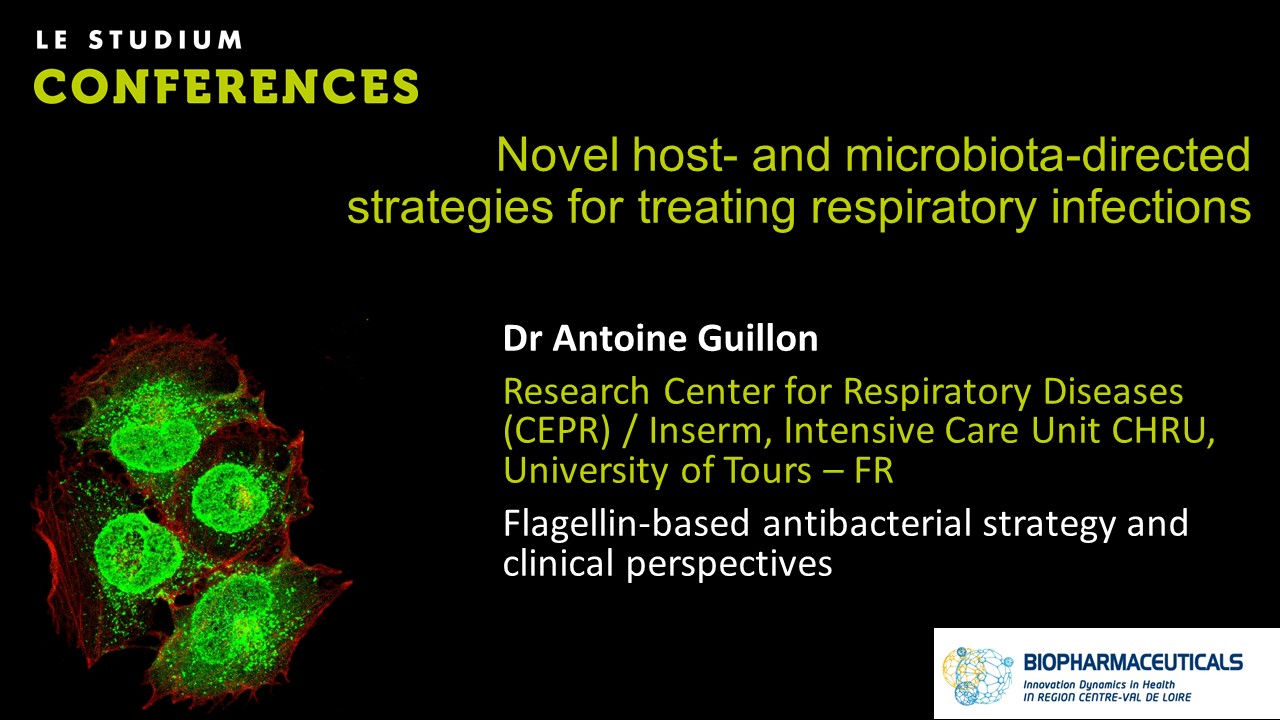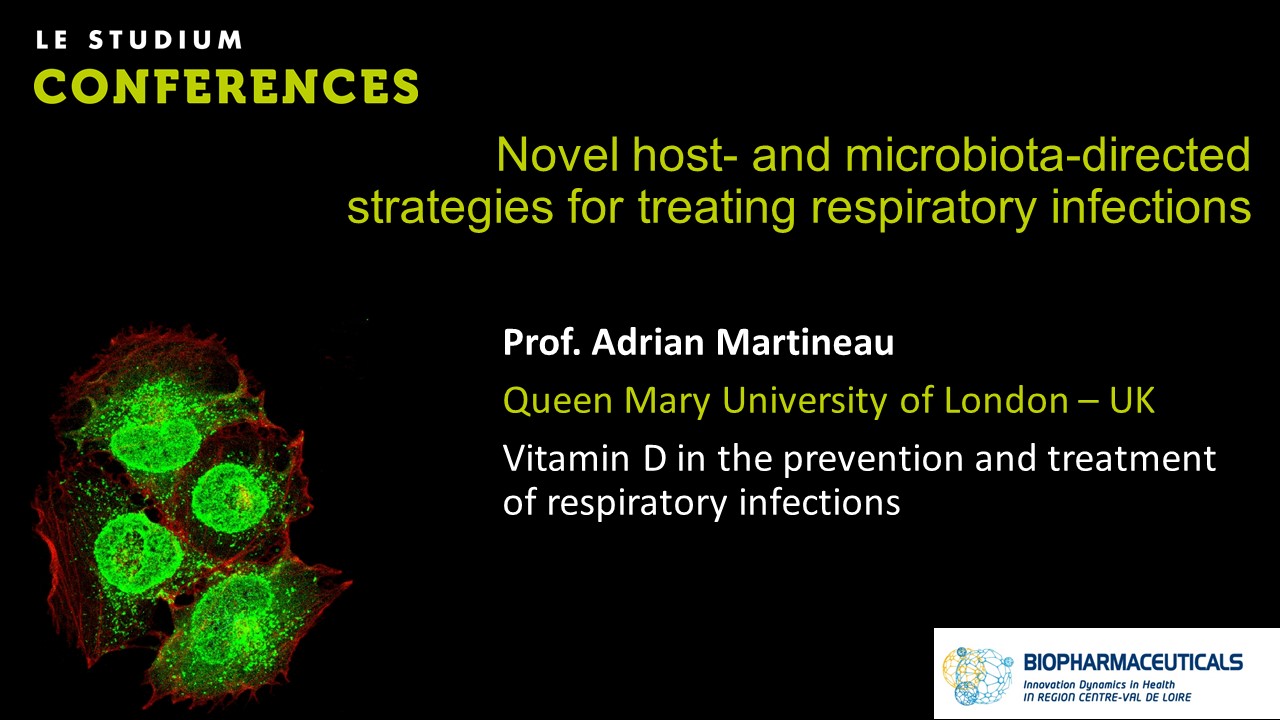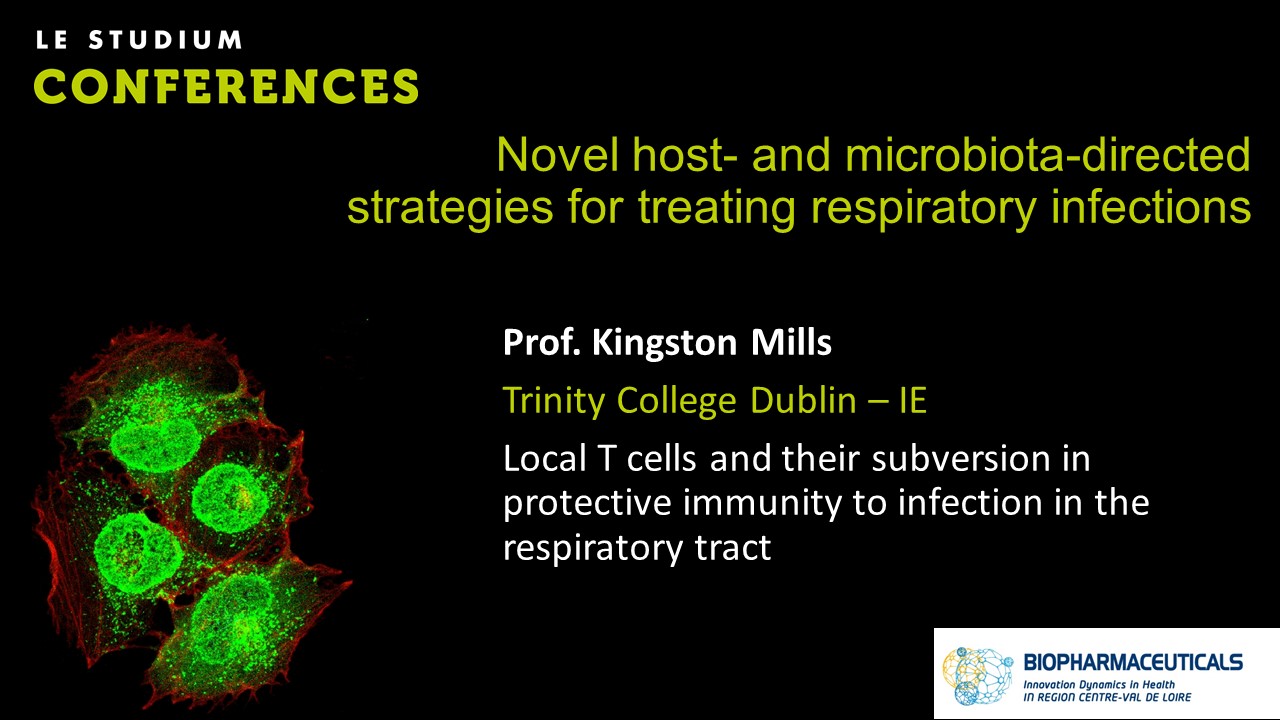Novel host- and microbiota-directed strategies for treating respiratory infections
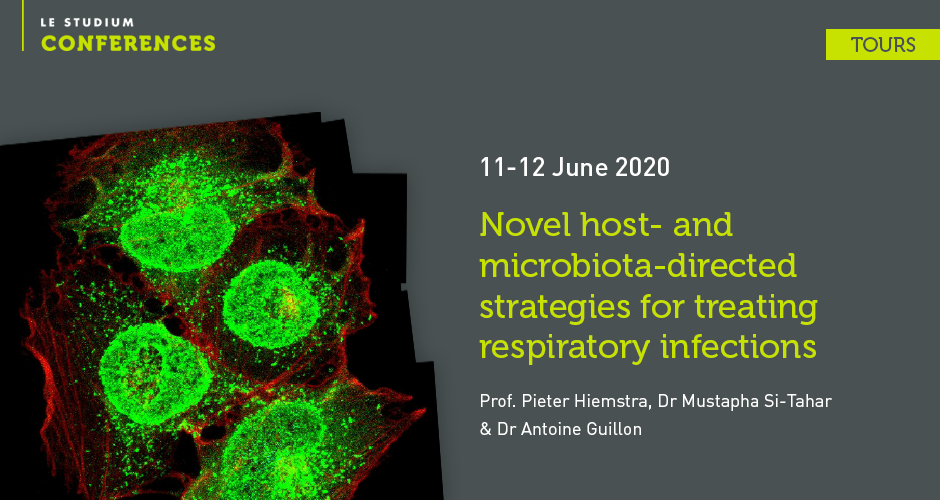
Descriptif
Respiratory infections ranked 4 in the WHO 2016 list of “Top 10 causes of death worldwide”. There is an urgent need for improved treatment of respiratory infections, in view of the absence of affordable treatment, but also because of the absence of effective drugs for selected respiratory pathogens and the increase in microbial resistance to conventional antibiotic treatment.
Recent insight into host defense mechanisms against respiratory infections and the respiratory microbiota have opened up new avenues for novel treatment strategies.
The aim of this Le Studium Conference is to bring together experts from a variety of European countries to discuss the latest developments in the field, and to explore future opportunities for collaboration with the Horizon 2020 program or related EU programs.
This international conference is organised in the framework of the BIOPHARMACEUTICALS ARD 2020 Programme.
Read more: http://www.lestudium-ias.com/event/novel-host-and-microbiota-directed-s…
Vidéos
Prof. Pieter Hiemstra - Antimicrobial Host Defence Peptides: Immunomodulatory Functions and Transla…
Antimicrobial host defence peptides (AMPs) are effector molecules of the immune system. AMPs are considered as possible alternatives to conventional antibiotics for the treatment of respiratory
Dr Rodrigo Guabiraba - Precision cut lung slices: a novel versatile tool to examine host–pathogen i…
The avian respiratory tract is a common entry route for many pathogens and an important delivery route for vaccination in the poultry industry. Immune responses in the avian lung have mostly been
Dr Guido Santos - Multi-level computational modeling as a tool to understand molecular mechanisms b…
Pneumonia is one of the most prevalent infectious diseases worldwide, whose main cause is the pathogen Streptococcus pneumoniae. This is an opportunistic disease affecting the most to sensitive
Dr Aurélie Crabbé - Host metabolites modulate bacterial susceptibility to antibiotics
Antibiotic susceptibility of bacterial pathogens is typically evaluated using in vitro assays that do not consider the complex host microenvironment. This may help explaining a significant
Dr Mustapha Si-Tahar - Towards a metabolic anti-influenza therapy
Influenza A virus (IAV) is the etiological agent of a contagious acute respiratory disease, which is associated with high morbidity and mortality. This virus also causes a considerable socio
Dr Raphaël Duivenvoorden - Trained Immunity as a novel therapeutic strategy
Innate immune cells form a vital first line of defense against pathogens, and their activation upon recognition of pathogens is rapid and non-specific. For a long time it has been assumed that
Prof. Mike Surette - The Good and the Bad of Commensal-Pathogen Interactions in the Airways
The airways are colonized by a complex microbiota that varies in composition and density spatially throughout the respiratory tract, as well as temporally through the life-course. While the lower
Dr Antoine Guillon - Flagellin-based antibacterial strategy and clinical perspectives
Bacterial pneumonia is a leading cause of morbidity and mortality worldwide. Antibiotics constitute the standard of care but are faced with the emergence of antimicrobial resistance and the curative
Prof. Adrian Martineau - Vitamin D in the prevention and treatment of respiratory infections
Vitamin D is best known for its effects on calcium homeostasis, but a growing body of evidence shows that it also has extensive immunomodulatory actions. In this talk I will describe the effects of
Prof. Kingston Mills - Local T cells and their subversion in protective immunity to infection in th…
Respiratory infection with Bordetella pertussis causes whooping cough. The infection is controlled by innate immune responses, but complete bacterial clearance from the respiratory tract and

